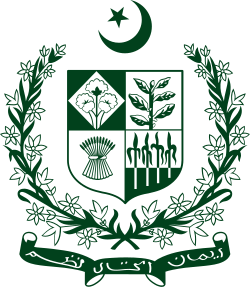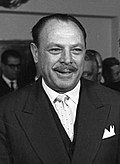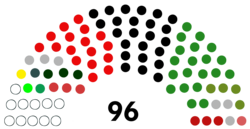Background
The 1962 constitution provided for an indirectly elected 156-seat National Assembly, of which 150 seats were elected from single-member constituencies by electoral colleges and six seats reserved for women, [2] who were elected by the 150 general members. [1] The seats were divided equally between East and West Pakistan. [2] There were 80,000 members of the electoral college ("basic democrats"), 40,000 in each wing. [3]
The electoral college members were elected between 31 October and 9 November 1964 in West Pakistan and from 10 to 19 November in East Pakistan. [4] A total of 264,254 candidates submitted nomination papers, of which 192,416 were successfully registered after disqualifications, withdrawals and retirements. [4] 11,652 were elected unopposed. [4]
The first task of the basic democrats was to elect the president, which occurred on 2 January 1965. [5]
This page is based on this
Wikipedia article Text is available under the
CC BY-SA 4.0 license; additional terms may apply.
Images, videos and audio are available under their respective licenses.




